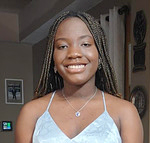On Oct. 7, I opened my phone after hours in a debate tournament to see a headline that struck me as appalling. Seeing the aftermath of rockets from Gaza Strip fired into Israel and other incursions that resulted in more than 1,400 casualties sparked a feeling of dread.
But for me, and so many in my circle, it was just a regular Saturday.
I saw so many news outlets report on this as a “new” and “breaking” story, but it’s not. This conflict has been in existence for decades. If you’ve been paying attention like the way I have, the way activists have, the way citizens in Israel and Palestine have been forced to, you’d know this.
However, to the privileged elite, it’s quite the spectacle.
On the same day as the airstrikes, Jamie Lee Curtis, a well-known actress, posted a photo on Instagram of children with the caption “Terror from the skies” and an Israeli flag emoji, but the children were reported to be Palestinian, according to Newsweek.
My community experienced a similar pattern from celebrities.
In 2020, if you were a celebrity or a public figure who didn’t encourage people to stay home, wear a mask, or vote in the election, you were “socially ignorant.”
The police killings of Breonna Taylor in Louisville in March and George Floyd in Minneapolis in May increased this mentality even more. Celebrities such as Ariana Grande, Bella Hadid and Timothée Chalamet posted black squares on their Instagram feed, went to protests, and donated to Black Lives Matter. This isn’t a bad thing of course, if it’s genuine.
But oftentimes, support from celebrities felt artificial. DJ David Guetta remixed the Rev. Martin Luther King Jr.’s “I Have a Dream” speech into a song to honor George Floyd’s life. Actress Emma Watson faced backlash for performative activism because she edited her black square to show solidarity with Black Lives Matter on Instagram to fit her feed aesthetic.
Although the actions are well-intentioned, this shows a pattern of ignorance that leads to more harm than good. The Black community was in shambles, I was in shambles. My people were senselessly murdered, and I was afraid that I, or someone I know, may be next. This wasn’t the time to post cute protest pictures with your friends or make remixes of famous speeches. It was a time for action.
We need to stop relying on celebrities to discuss complex and nuanced issues that they don’t know well enough.
Why? Because it doesn’t impact celebrities. Why would celebrities need to think of the thousands of dead Palestinians and the immense amount of people affected by the war on both sides when they’re thousands of miles away? Rather, why would they want to?
However, celebrities still use the spotlight to speak and spread misinformation or speak without being genuine.
Image is everything. The damage that comes from protecting that image, however, can be insurmountable. I’m not Jewish or Palestinian. I haven’t seen the damage Hamas has done to the citizens in Israel. Or the destruction to hospitals along the Gaza Strip. But I can attest to the negative consequences that ignorance and misinformation can spread.

Alexis Aryeequaye
As a Black person, why is a rich white person’s voice louder than mine? Why are the opinions of people thousands of miles away from the crossfire of mass genocide more important than the voices of people suffering in Gaza and Israel? The question I’ve been asking myself in light of the war is, why?
Maybe it starts with who. Who are you going to call on for action and change? Is it going to be your favorite privileged, white influencer? Or someone like me?
Alexis Aryeequaye, who is 15 years old and a sophomore in Rosemount, developed this piece as part of a ThreeSixty Journalism workshop at the University of St. Thomas.
